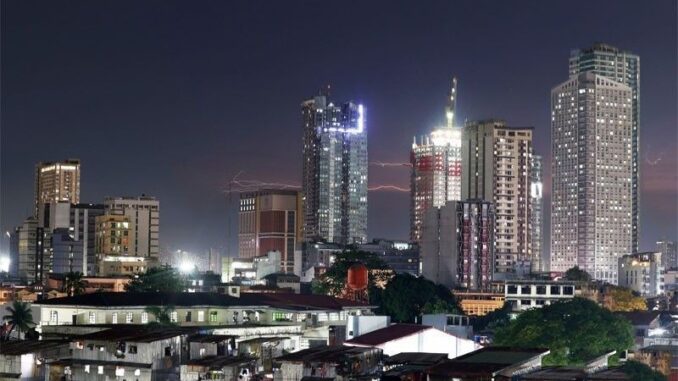
MANILA, Philippines — As the US presidential election approaches, the Philippines could face heightened economic and geopolitical risks if former president Donald Trump wins, according to Japanese investment bank Nomura.
In a report, Nomura Global Markets Research said the Philippines is considered the most vulnerable among ASEAN nations due to the country’s close ties with the US and its reliance on the American market.
“Similar to Trump’s first term, the Philippines will be among the most vulnerable through various channels,” Nomura said.
During his previous administration, Trump adopted a protectionist stance by imposing tariffs and renegotiating trade agreements to favor American interests. If re-elected, Trump is expected to revive similar policies.
“The direct exposure comes from the Philippines’ goods trade surplus with the US which has risen in the last few years and exports are likely to be hurt by the 10 percent tariffs proposed by Trump,” Nomura said.
Based on data from the Philippine Statistics Authority, the US was the top destination of Philippine exports in June, with shipments reaching $897.80 million or 16 percent of the total.
The Philippines’ merchandise exports fell by 17.3 percent to $5.57 billion in June from $6.73 billion in the same month last year.
The Philippines will also be at risk from various channels, including the impact on workers’ remittances from a possible tightening of US immigration policy as well as the outsourcing sector.
Trump’s previous term saw a reduction in the number of US companies outsourcing jobs abroad, including the Philippines, where most of the business process outsourcing (BPO) sector caters to US companies.
Nomura said that policies, which aim to “bring back jobs to America” might affect BPO revenues. This was the case during Trump’s first term, where services exports growth to the US halved to 5.1 percent from 2017 to 2019 compared to prior years.
“By the same token, remittances growth also slowed during Trump’s (first term), suggesting that a tightening in US immigration policy might affect workers’ remittances from the US which are even more sizable,” it said.
Nomura said if risks materialized through these channels, the Philipines’ gross domestic product (GDP) growth could lower by 0.2 percentage points. But this is still manageable as the Philippines is expected to grow by 6.1 percent in 2025.
Meanwhile, there could be heightened geopolitical tensions in the South China Sea if the US provides less regional security and reduces its military presence under Trump’s presidency.
“The upshot in that scenario is that Beijing’s current assertiveness in the disputed waters might continue,” Nomura said. “Rising tensions might increase the risk of more serious confrontation, in our view.”


Be the first to comment